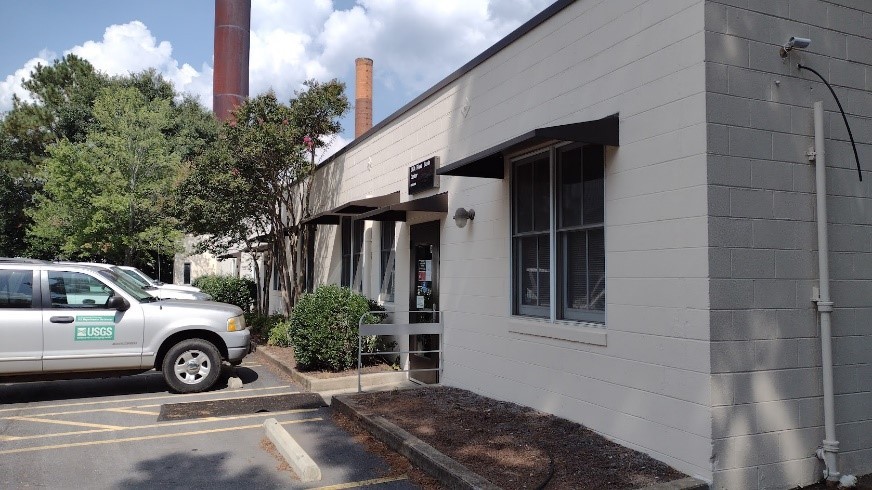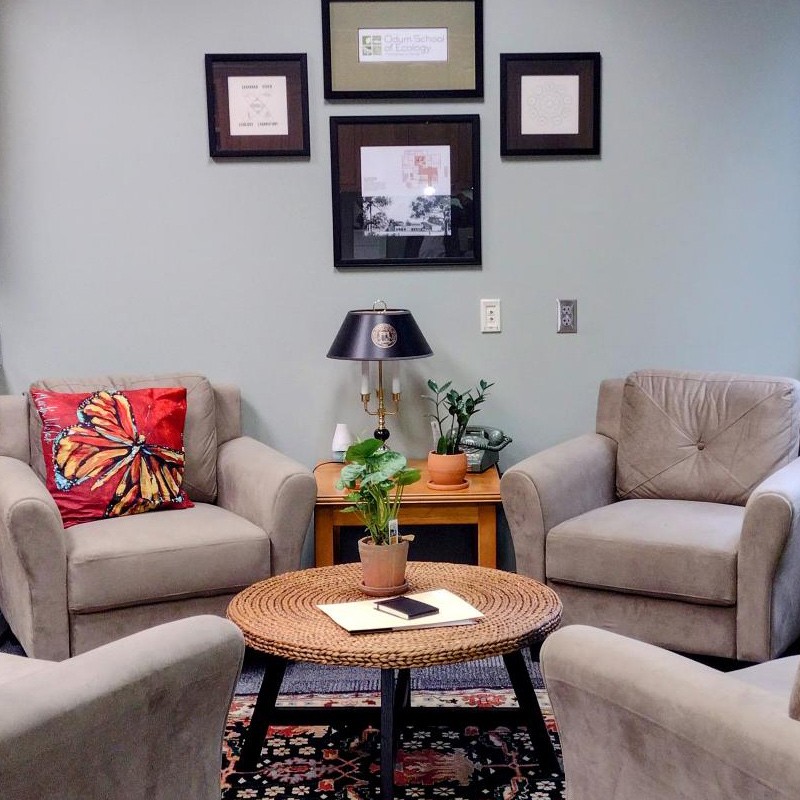Friday morning coffee hour returned this past month, after an 18-month hiatus. The coffee aroma once again drifts through the front lobby on Friday mornings, and the rotating lab treats make breakfast worth the wait. Now more than ever, we appreciate the Ecology building’s courtyard as a space to gather to share ideas and catch up with colleagues. We also welcome seeing each other in-person after last year’s long stretches of working from home and days filled with back-to-back zoom meetings. The courtyard has been a focal point of the Ecology Building since its completion in 1974. It’s a space we currently share with native plantings, Anolis lizards and introduced geckos that climb the bricks, and hummingbird visitors to the trumpet vine blooms. I especially love the stretches of cooler, sunny fall days that October brings to Georgia, which means more opportunities to gather outdoors, and the energizing sight of students, staff, and research teams meeting in the courtyard.
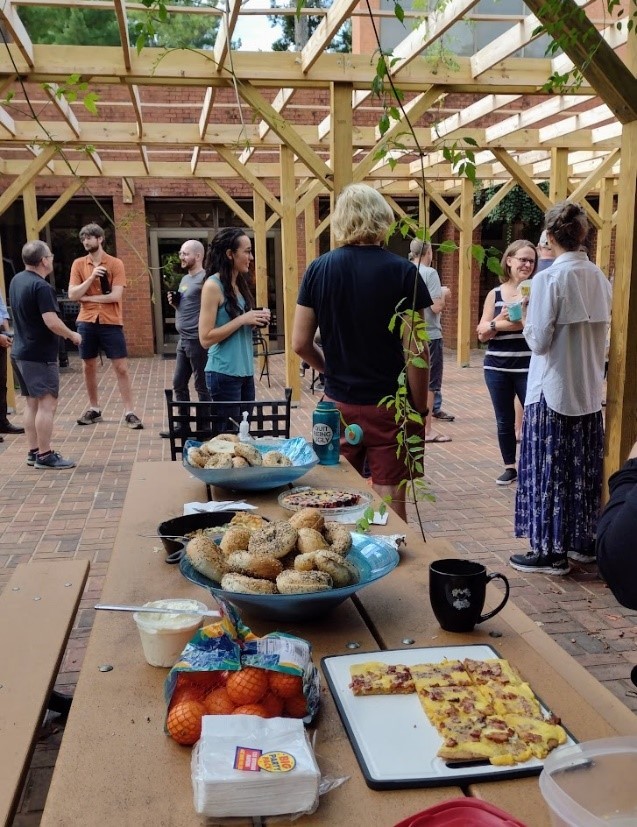
The past 2 years brought big changes to the area on the east side of the Ecology Building. The former EcoShed was demolished in early 2019, to make way for the new Interdisciplinary STEM Research Building. Phase I of this $65 million project is scheduled to open next month, and provides research and collaborative space for faculty and graduate students in chemistry and engineering. Ecology building occupants experienced intermittent disturbances throughout this process, such as when crews blasted through layers of bedrock to create the 3-story underground parking deck. In the final construction phases this month, there has been a big push to complete the new driveway and sidewalks, landscaping, and other finishing touches. The project delivered a new and improved loading dock to the Ecology building, and nicer views looking out from the back side of our building. In addition to offering four stories (and 100,000 square feet) of laboratory and support space for more than 30 faculty in chemistry and engineering, we hope this project will provide easier foot travel between Ecology and the Georgia Museum of Natural History, and foster opportunities for interaction with our colleagues from other units on campus.
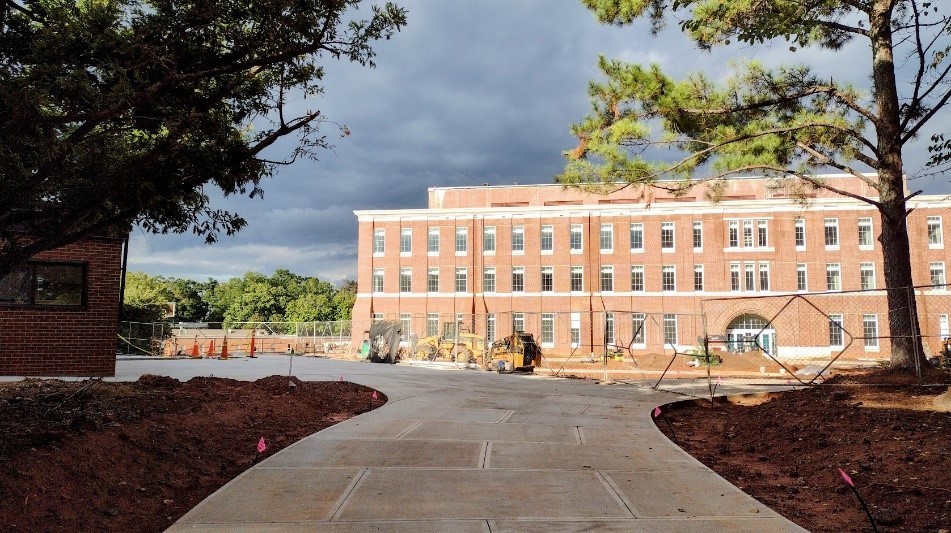
The ongoing surge of the Covid-19 delta variant appears to have recently peaked across large parts of the US. Cases on campus and across the state of Georgia have now declined for the third week in a row. Like many of you, I’ve been watching the daily case counts during the past two months, first with apprehension, then grave concern, and now with a sense of cautious optimism. Even with the new projections of declining cases through March, and booster shots on the horizon, we’ll be dealing with the virus and its repercussions for some time to come. As Interim Dean, I recognize the weight of responsibility for student and community safety that’s fallen on the shoulders of our faculty, staff and students. Ecology will continue to provide a supply of masks, signage, and share UGA public service announcements to urge folks to mask up and vax up. Please reach out to us for help, resources, or to share your ideas and concerns.
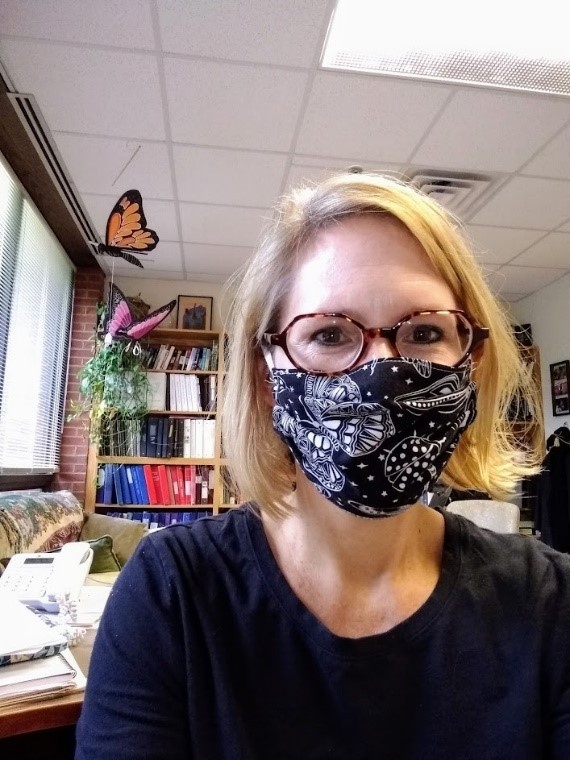
The SARS-CoV-2 pandemic underscores that studying and managing the emergence and spread of infectious diseases is a pressing and complex global challenge. Understanding infection dynamics requires interdisciplinary approaches that bring together state-of-art computational methods with observational and experimental data. The Odum School of Ecology adds critically to UGA’s strength in infectious disease research and training. We offer courses in infectious disease dynamics at the undergraduate and graduate levels, and teach students how to explore epidemiological data and underlying processes using advanced computational methods. The Center for the Ecology of Infectious Diseases (one of two research centers in the Odum School, housed in the former electronics shop building next door to Ecology) is one of the nation’s leading centers for infectious disease research, and sponsors scientific working groups on topics ranging from Pathogen Spillover to Coronavirus Dynamics. Over the next 2 years, Ecology will team with 3 other colleges on campus to recruit 8 new faculty colleagues in the area of artificial intelligence, data science and the dynamics of infectious diseases, as part of a university-wide Presidential Interdisciplinary Cluster Hire Initiative. Every month, research teams led by Odum School faculty, postdocs and students are publishing new discoveries on pathogen spread and emergence, such as an exciting new analysis of the top 100 zoonotic disease outbreaks spearheaded by CEID members. We know that as humans impact the planet and its natural systems, infectious diseases will continue to emerge, and our unit is committed to offering the best science and training to tackle current and future challenges.
